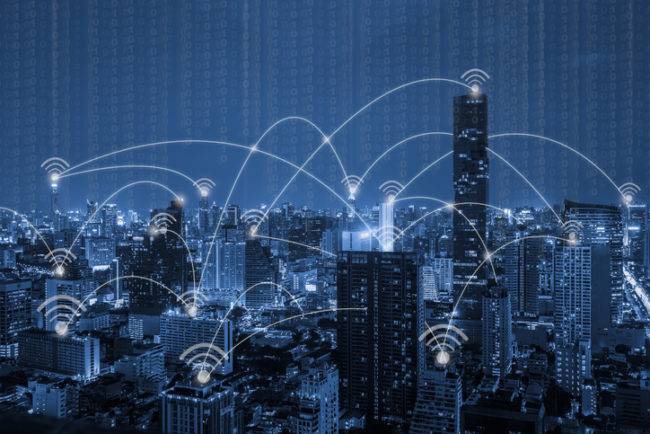The most important aspects of the logistics industry are safety and efficiency. At the end of May, LogiNext, a Mumbai-based SaaS company, unveiled its most advanced location-tracking SDK to help more logistics companies and e-commerce platforms gain necessary insights on traffic data so that they can provide a better customer experience. LogiNext users just need to install the location tracking SDK into their smartphones to discover their real-time location, movement, surrounding traffic conditions, and estimated time of arrival.
Don’t miss your chance to attend our IoT Revolution Symposium
Logistics companies, especially small, private ones, can offer more accurate and efficient services with LogiNext’s tracing software — feedback traffic data from the tracking software plays a key role in the companies’ performance development and market expansion. Due to limited technologies and prime costs, small logistics companies usually lack systematic management modes for data operation.
See also: 3 counterintuitive trends to consider with smart cities
Joining a large “mother” company seems like an ideal solution, but under such a corporation, the smaller sub-company is limited by the technology authorized by its mother company. A small Chinese logistics sub-company recently told us that because of its role as a sub-company, it can’t be as efficient as a large company at service quality and delivery speed. The only advantage it has over its larger competitors is its lower price, but this lower price does not allow them to ensure the quality of the service.
With the help of LogiNext, these smaller logistics companies could make data collection and location tracking possible in the near future, saving delivery time. Constant feedback information makes regional data collection and analysis more convenient, which allows these smaller companies to distribute their resources in different regions with the best solution; customers will have a better experience if such technology is applied to these logistics companies.
Besides its positive influence on the current logistics industry, LogiNext’s advanced location tracking SDK will also become a crucial part of smart and connected cities in the future. We all know that support from big data is essential when building a connected world. Logistics offers the easiest way to collect updated data on transportation and locations — the most important data sets for smart cities.
UK-based Starship Technologies and China-based JD.com both launched self-driving distribution cars, which illustrated the practical uses of self-driving cars. The launches reflected the importance of collecting cities’ big data via logistic info.
Dhruvil Sanghvi, the CEO of LogiNext, agreed. “Tracking is knowledge [and] would be the gateway leading to a more connected and interlinked future,” he said.
There can be issues, though
Potential problems abound in collecting data via logistics to build connected cities. One of the most obvious problems is privacy. We are all familiar with breaches of customers’ private data conducted by big firms, but logistics data and information are actually more sensitive and private — they involve people’s shopping histories, addresses, and even payment information. To protect users’ privacy, logistics companies and e-commerce platforms are beginning to use digital bills instead of hard copies and will encrypt and monitor the distribution of data through the entire process.
LogiNext’s location tracking software can also help companies supervise the whole delivery process, from big-picture performance to the position of an individual delivery car; this will be very useful in ensuring data safety for logistics companies, as well as for their customers. Because the software itself is just a tool, LogiNext and other logistics companies need to set more regulations on the software so that people and companies will use it properly.
LogiNext’s location tracking service will only get better and more competitive within the big data market, and companies will choose to use its services to provide a more seamless and friendly user experience for their customers.










